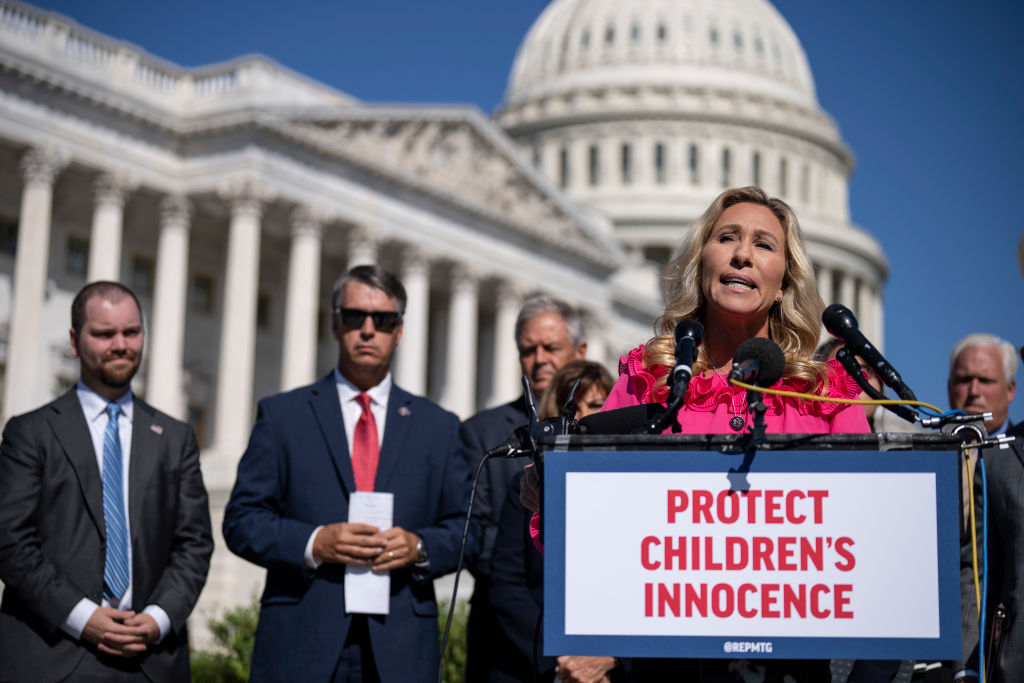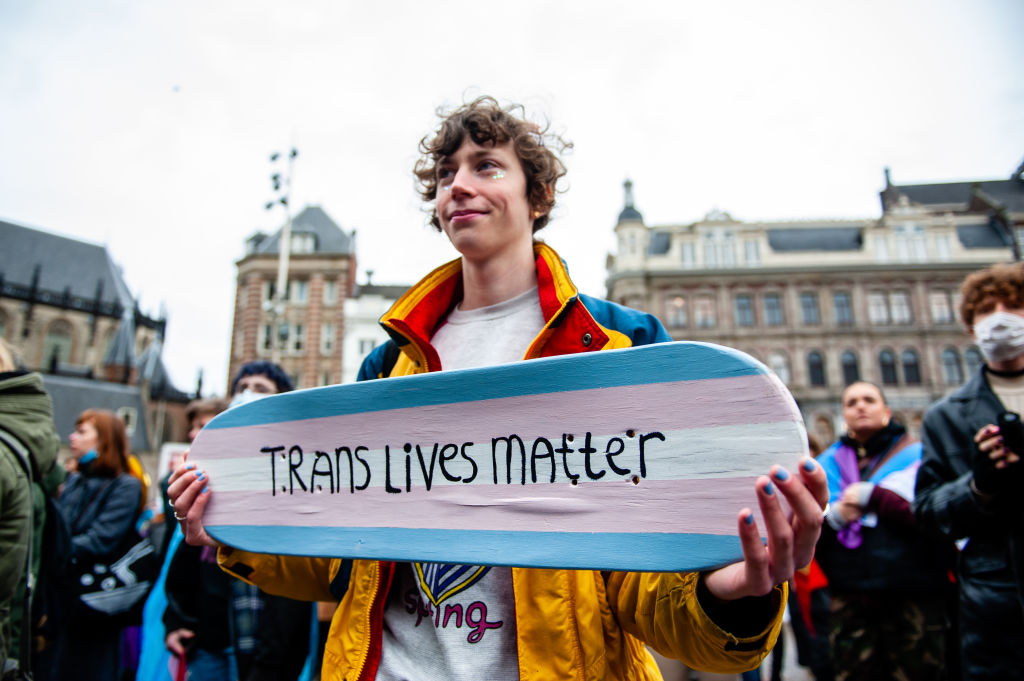Proud mum of trans teen explains how anti-trans debate ‘messed with her head’

Politicians and media outlets are courting anti-trans talking points – and it’s trans kids who are feeling the effects. (Getty)
When Laura’s daughter Jessica came out as trans, aged 13, she felt “total shock” – but believed every word she said.
“We believed and accepted our daughter from the beginning, even though we were processing a lot as parents,” Laura tells PinkNews. Jessica had been suffering from severe depression and anxiety.
“I sprung into action and just started reading all I could about the transgender experience. I called the paediatrician, I researched gender clinics, and we got on a waitlist for an appointment.
“There was just such a sense of urgency because we feared for her life.”
One of the first articles Laura stumbled across was one in The Atlantic – a controversial piece titled “When Children Say They’re Trans”, by Jesse Singal, which focused on the stories of detransitioners and suggested some young trans men are actually just struggling with the fact “society makes it difficult to be a girl”.
“That article really messed with my head, as the parent of a newly out trans teen searching for help,” Laura says.
“I read that article, by a publication I thought was very legitimate, and thought, ‘That does not sound right to me. What he’s saying goes against what my child has told me and it doesn’t ring true.’
“I had to wade through a lot of articles online that were literally trying to get me to question my child and it made an already really challenging time even more so.”
It’s a terrifying climate for a mother like Laura. She wasn’t aware of just how bad things were for the trans community until she started reading everything she could to inform her response to Jessica.
In the United States – and across much of the world – politicians are using trans lives to distract from their own failures. Many media outlets have shown they’re only too happy to aid lawmakers in their efforts to drum up a moral panic.
While some states have banned gender-affirming care for minors, major news outlets like The New York Times have published articles questioning whether kids should be able to access healthcare that’s widely seen as vital by experts.
Anti-trans media coverage pushes parents to ‘question’ their trans kids

Laura kept digging and eventually she found the gender-affirming resources she needed, but she also discovered her own state was considering its own anti-trans bills, including one which would ban gender-affirming care for minors.
“All of this while my child was just starting care that was saving her life,” she says.
That revelation pushed Laura to become her daughter’s fiercest advocate – but it also inspired her to start fighting for trans rights across the board.
“It is hard enough for all of us existing in this climate, but for so many parents like me and for trans people everywhere, it feels like we are yelling into the void, imploring everyone we can to see what’s happening, to speak out, to act up, to help us.”
Trans teens shouldn’t have to fight for their right to exist
One of the most difficult days in Laura’s life as a parent came when she had to explain to Jessica that legislators were doing their best to stop her from accessing the care she needed.
“No one should have to explain to their child why a group of people wants them gone. But so many parents are in this exact position in this country right now, whether they are fighting for their trans kids, for their loved ones to be able to access abortions, for their children to not be shot by police.

“What kind of person, what kind of country, stands by and allows a group of people to be attacked and demonised in this way?”
Laura just wants her daughter to be allowed to live her life like any other young person and not have to think about how her life can be destroyed by a politician’s whims.
“My daughter is like every other teen her age. She doesn’t want to have to fight for her right to live – she just wants to live and be free.”
The impact anti-trans debates are having on kids isn’t just anecdotal. According to The Trevor Project, an organisation that works to prevent suicide among LGBTQ+ youth, “ugly rhetoric” is causing harm.
“When you see your elected officials, neighbours, and even family members debate your very existence, those feelings of stigma and rejection can be very harmful to a young person’s sense of self,” says Kasey Suffredini, vice president of advocacy and government affairs with The Trevor Project.
“Experiences of rejection and trauma in adolescence can have long-lasting effects on a young person’s health and wellness. Adults, especially those in positions of power, should strongly consider the weight of their words and actions.”
It’s a tough time out there for trans kids, but Suffredini has some simple advice for adults who are wondering how they can help: try letting them know that you support them and that you’ll defend their right to be themselves.
“It can be tough for LGBTQ youth to always bear the burden of educating others about what it means to be LGBTQ.”
Laura and Jessica’s names have been changed to protect their identities.

